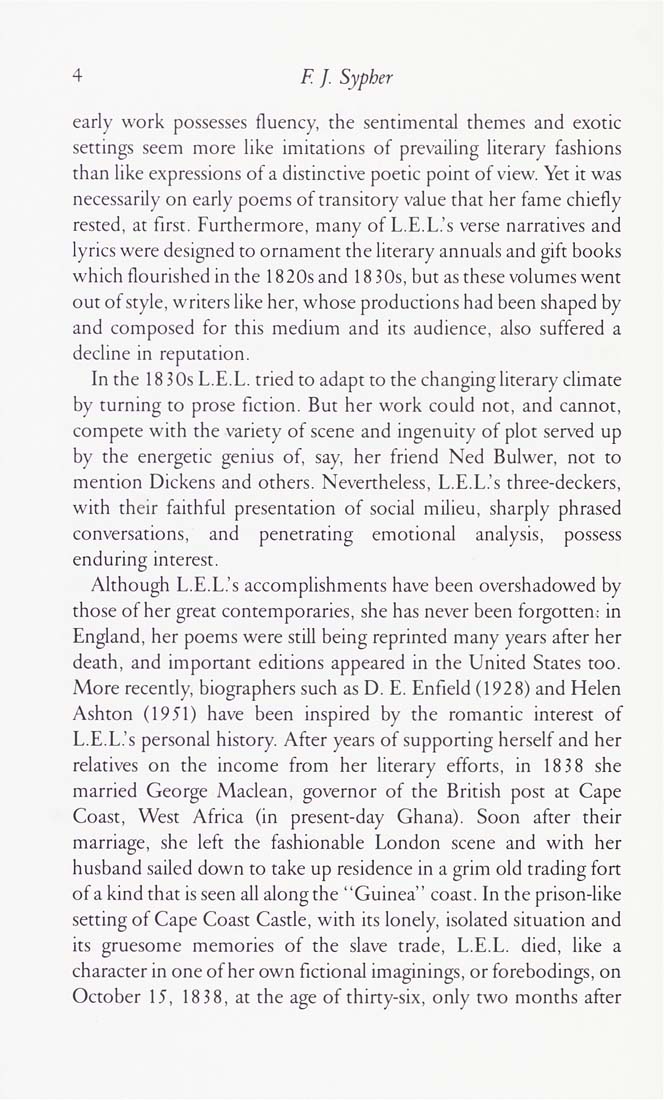Columbia Library columns (v.39(1989Nov-1990May))
(New York : Friends of the Columbia Libraries. )
|
||
|
|
|
|
| v.39,no.3(1990:May): Page 4 |

4 F. J. Sypher early work possesses fluency, the sentimental themes and exotic settings seem more like imitations of prevailing literary fashions than like expressions of a distinctive poetic point of view. Yet it was necessarily on early poems of transitory value that her fame chiefly rested, at first. Furthermore, many of L.E.L.'s verse narratives and lyrics were designed to ornament the literary annuals and gift books which flourished in the 18 20s and 18 3 Os, but as these volumes went out of style, writers like her, whose productions had been shaped by and composed for this medium and its audience, also suffered a decline in reputation. In the 18 30s L.E.L. tried to adapt to the changing literary climate by turning to prose fiction. But her work could not, and cannot, compete with the variety of scene and ingenuity of plot served up by the energetic genius of, say, her friend Ned Bulwer, not to mention Dickens and others. Nevertheless, L.E.L.'s three-deckers, with their faithful presentation of social milieu, sharply phrased conversations, and penetrating emotional analysis, possess enduring interest. Although L.E.L.'s accomplishments have been overshadowed by those of her great contemporaries, she has never been forgotten: in England, her poems were still being reprinted many years after her death, and important editions appeared in the United States too. More recently, biographers such as D. E. Enfield (1928) and Helen Ashton (1951) have been inspired by the romantic interest of L.E.L.'s personal history. After years of supporting herself and her relatives on the income from her literary efforts, in 18 38 she married George Maclean, governor of the British post at Cape Coast, West Africa (in present-day Ghana). Soon after their marriage, she left the fashionable London scene and with her husband sailed down to take up residence in a grim old trading fort of a kind that is seen all along the "Guinea" coast. In the prison-like setting of Cape Coast Castle, with its lonely, isolated situation and its gruesome memories of the slave trade, L.E.L. died, like a character in one of her own fictional imaginings, or forebodings, on October 15, 1838, at the age of thirty-six, only two months after |
| v.39,no.3(1990:May): Page 4 |







